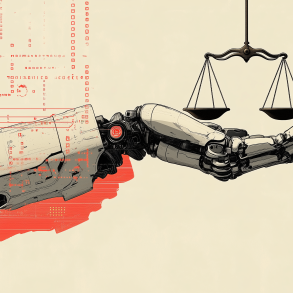At a recent Yale CEO Summit held online to celebrate the 50th anniversary of the internet’s invention, top Fortune 500 CEOs discussed the transformative role of artificial intelligence, clean energy, and other emerging technologies in their industries.

Steve Case, CEO of Revolution Growth, highlighted a shift in AI application from broad platforms to specific industry uses. “We’re seeing a transition from AI being a big horizontal platform, the large language models centered in Silicon Valley, to more vertical AI deployed in industry verticals, which creates an opportunity all across the country, from factory floors in Ohio to ag tech in the Midwest to biotech labs.”
The CEOs shared that integrating these technologies into their business models comes with a myriad of challenges, including business, regulatory, and technical issues. Insights from the summit revealed significant strides in various sectors. Chipotle CEO Brian Niccol discussed how automation and AI are improving employee satisfaction by handling mundane tasks like food preparation, enhancing efficiency especially during staff shortages.
We’ve heard feedback from our team members that the jobs they don’t enjoy doing include frying chips; and cutting, coring, and scooping avocados, so we’ve been finding automated solutions that can take care of that prep in a consistent way.
Brian Niccol, CEO of Chipotle
Rodney McMullen, CEO of Kroger, demonstrated how AI has halved checkout times, improving customer experience and addressing labor shortages by optimizing store layouts and checkout processes. Glenn Fogel of Booking Holdings and Greg Maffei of Liberty Media discussed how AI is personalizing customer experiences in travel, from streamlined booking processes to customized travel itineraries based on user-generated content.
In the realm of finance, Bank of America CEO Brian Moynihan shared insights into their AI-driven voice-activated assistant, Erica, which enhances customer banking experience by handling over two billion interactions. “First, we had to build a language which was recognized for banking, and then build a structure which works in a controlled, regulated environment, which is what financial services is.”

The automotive and manufacturing sectors are also seeing significant advancements with AI. Mary Barra, CEO of General Motors, discussed how the integration of AI is pivotal in advancing electric vehicle technology and autonomy in vehicles, aiming to enhance safety and efficiency.
At AGCO, smart farming technologies are revolutionizing agricultural practices. CEO Eric Hansotia described how onboard compute sensors and AI are used to optimize spraying operations, significantly reducing chemical usage by targeting only the weeds.
The summit also touched on the broader impacts of AI on infrastructure needs and energy consumption, with leaders like Roger McNamee and Glenn Hutchins highlighting the substantial resources required to support large-scale AI operations.
These discussions underscore the wide-reaching impact of AI and technology across various industries, driving innovations that are reshaping the business landscape in visible and profound ways.









